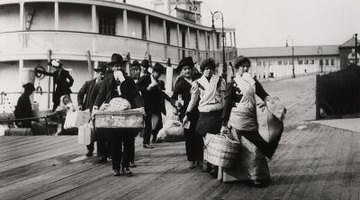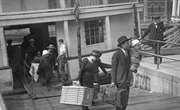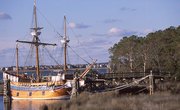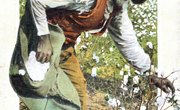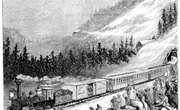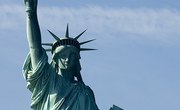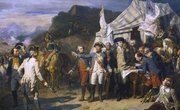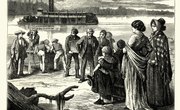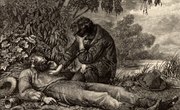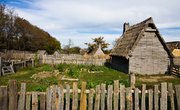As when the Pilgrims suffered through their first harsh New England winter, succeeding generations of immigrants have had their own struggles and hardships in this new land. Pushed from their homelands by persecution and political turmoil, the Pilgrms seized the opportunity to work, earn money and live in peace in the United States. Unfortunately, they often faced the prejudices of their immigrant predecessors and unfair business and labor practices. America offered immigrants plenty of opportunities, but they had to endure their share of hardships.
Overcrowding
After debarking from Ellis Island, the first stop for many immigrants was the Lower East Side of Manhattan. Poor newcomers crowded into newly built tenements, paying five cents a night to sleep on a crowded floor. Greedy landlords reaped a profit and invested in more tenements, built behind the old ones. These new tenements lacked fresh air and light. The immigrants poured in, making the Lower East Side the most densely populated place on earth, and a breeding ground for deadly diseases.
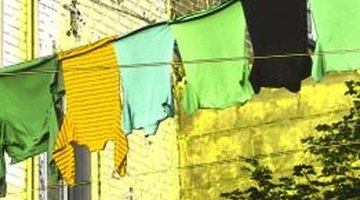
Sweatshops
Desperate for any kind of employment, newly arrived immigrants worked in crowded factories called sweatshops. In these days before labor law and workplace safety, the new arrivals worked long hours for little pay in unhealthy conditions. The Triangle Shirt Waist Factory was a sweatshop where 500 immigrant workers, mostly women, some as young as 14 years old, toiled for twelve hours a day. When a fire broke out on Saturday afternoon, March 25th, 1911, 146 workers died. Many could not escape because the factory owners locked the doors to keep their work force from taking breaks.
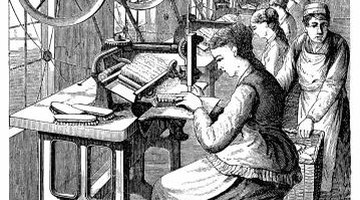
Religious persecution
As Catholics and jews came in large numbers, many protestants became alarmed. They wanted to keep Catholics and other newcomers out of the country. Many formed the American Party, which many referred to as the "know nothing" party. They limited thier membership to native-born Protestants and sought to enact laws barring all Catholics and immigrants from public office. Always secretive, they earned their nickname by replying "I know nothing" when non-members asked about their views.
Persecution of Chinese immigrants
About 250,000 Chinese laborers came to the western United States to work on the railroad. Once the Chinese entered the general workforce, white workers saw them as competition and tried to keep them out of the labor force. They passed a law to protect their own jobs. The San Francisco City Council passed a law banning laundries in wooden buildings, ostensibly for fire safety, but applied only to Chinese businesses. The Supreme Court struck the law down and ordered that all laws must apply to all residents.
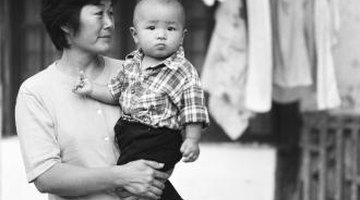
Related Articles
References
Writer Bio
Paul Argodale has written for the "Village Voice" in New York City, as well as several specialized academic journals. He holds a Master of Arts in applied linguistics and a Bachelor of Arts in mathematics and philosophy.

